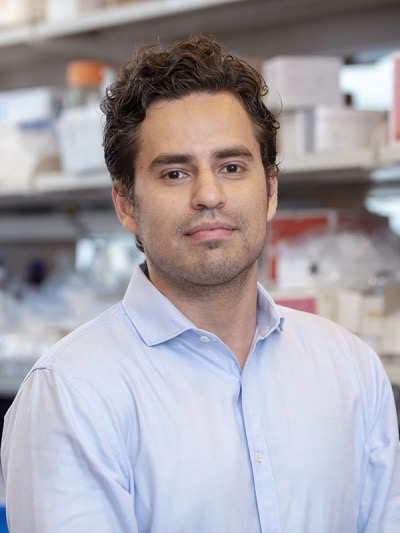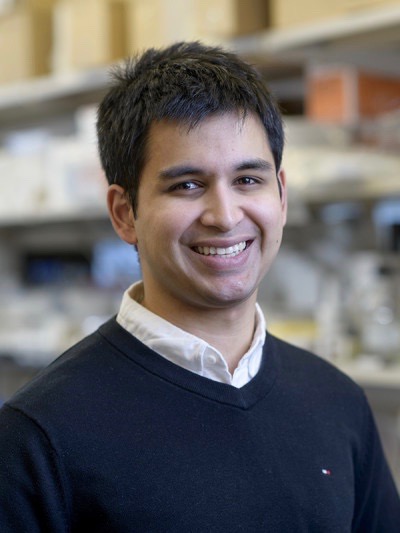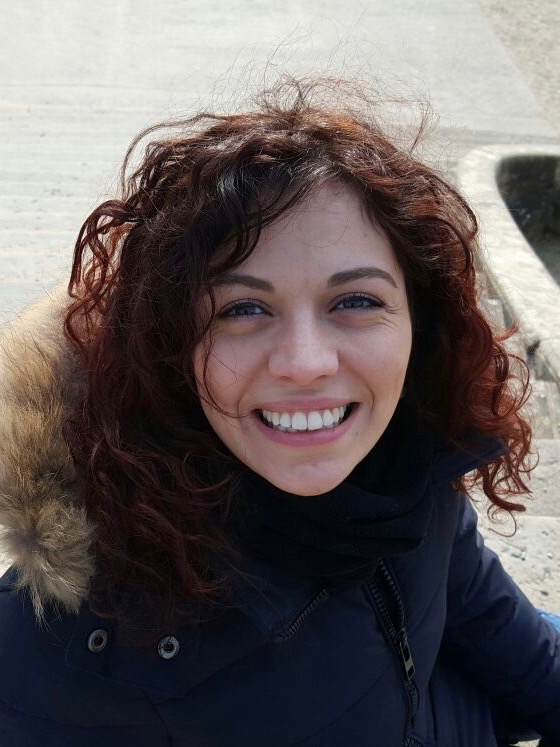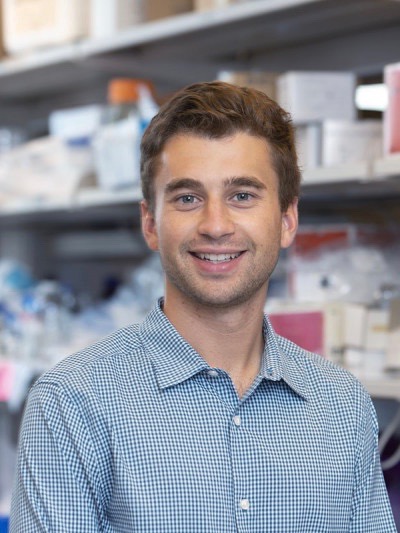Analysis
There is evidence that the evolutionary divergence of HLA class I genotype impacts the efficacy of cancer immunotherapy.
Read more about HLA class-I allele divergence in Nature Medicine and in Molecular Biology And Evolution .
If you use this tool, please cite the following two papers.
Chowell, D., Krishna, C., Pierini, F., Makarov, V., Rizvi, N. A., Kuo, F., … Chan, T. A. (2019). Evolutionary divergence of HLA class I genotype impacts efficacy of cancer immunotherapy. Nature Medicine, 25(11), 1715–1720. https://doi.org/10.1038/s41591-019-0639-4
Pierini, F., & Lenz, T. L. (2018). Divergent Allele Advantage at Human MHC Genes: Signatures of Past and Ongoing Selection. Molecular Biology and Evolution, 35(9), 2145–2158. Retrieved from http://dx.doi.org/10.1093/molbev/msy116
Allele Pair
Select any two HLA class I alleles to calculate the evolutionary divergence between them.
The HED between and is .
Loci A, B, C & Mean
Select HLA class I alleles for loci A, B, and C to calculate the evolutionary divergence between at each locus as well as the mean evolutionary divergence.
The HED between and is .
The HED between and is .
The HED between and is .
The mean HED is .
Batch Processing
Use the panel below to upload a TSV file for batch processing of HED values. The file should match the format below.
Sample HLAI Pt01 A3303,A3201,B4501,B4402,C0704,C1601 Pt02 A0201,A3101,B4403,B4501,C1601,C0501 Pt03 A6801,A3101,B1301,B3503,C0403,C0401
The output will match the format below.
Sample Alleles HED_A HED_B HED_C Mean_HED Pt01 A3303,A3201,B4501,B4402,C0704,C1601 6.05525 4.93923 4.96685 5.32044 Pt02 A0201,A3101,B4403,B4501,C1601,C0501 7.51934 5.88950 4.12155 6.76796 Pt03 A6801,A3101,B1301,B3503,C0403,C0401 4.49171 6.74033 2.96133 4.73112
About
Evolutionary divergence of HLA class I genotype impacts efficacy of cancer immunotherapy
Chowell, D., Krishna, C., Pierini, F. et al. Evolutionary divergence of HLA class I genotype impacts efficacy of cancer immunotherapy. Nat Med 25, 1715–1720 (2019). https://doi.org/10.1038/s41591-019-0639-4
Functional diversity of the highly polymorphic human leukocyte antigen class I (HLA-I) genes underlies successful immunologic control of both infectious disease and cancer. The divergent allele advantage hypothesis dictates that an HLA-I genotype with two alleles with sequences that are more divergent enables presentation of more diverse immunopeptidomes1,2,3. However, the effect of sequence divergence between HLA-I alleles—a quantifiable measure of HLA-I evolution—on the efficacy of immune checkpoint inhibitor (ICI) treatment for cancer remains unknown. In the present study the germline HLA-I evolutionary divergence (HED) of patients with cancer treated with ICIs was determined by quantifying the physiochemical sequence divergence between HLA-I alleles of each patient’s genotype. HED was a strong determinant of survival after treatment with ICIs. Even among patients fully heterozygous at HLA-I, patients with an HED in the upper quartile respond better to ICIs than patients with a low HED. Furthermore, HED strongly impacts the diversity of tumor, viral and self-immunopeptidomes and intratumoral T cell receptor clonality. Similar to tumor mutation burden, HED is a fundamental metric of diversity at the major histocompatibility complex–peptide complex, which dictates ICI efficacy. The data link divergent HLA allele advantage to immunotherapy efficacy and unveil how ICI response relies on the evolved efficiency of HLA-mediated immunity.
Divergent Allele Advantage at Human MHC Genes: Signatures of Past and Ongoing Selection
Federica Pierini, Tobias L Lenz, Divergent Allele Advantage at Human MHC Genes: Signatures of Past and Ongoing Selection, Molecular Biology and Evolution, Volume 35, Issue 9, September 2018, Pages 2145–2158, https://doi.org/10.1093/molbev/msy116
The highly polymorphic genes of the major histocompatibility complex (MHC) play a key role in adaptive immunity. Divergent allele advantage, a mechanism of balancing selection, is proposed to contribute to their exceptional polymorphism. It assumes that MHC genotypes with more divergent alleles allow for broader antigen-presentation to immune effector cells, by that increasing immunocompetence. However, the direct correlation between pairwise sequence divergence and the corresponding repertoire of bound peptides has not been studied systematically across different MHC genes. Here, we investigated this relationship for five key classical human MHC genes (human leukocyte antigen; HLA-A, -B, -C, -DRB1, and -DQB1), using allele-specific computational binding prediction to 118,097 peptides derived from a broad range of human pathogens. For all five human MHC genes, the genetic distance between two alleles of a heterozygous genotype was positively correlated with the total number of peptides bound by these two alleles. In accordance with the major antigen-presentation pathway of MHC class I molecules, HLA-B and HLA-C alleles showed particularly strong correlations for peptides derived from intracellular pathogens. Intriguingly, this bias coincides with distinct protein compositions between intra- and extracellular pathogens, possibly suggesting adaptation of MHC I molecules to present specifically intracellular peptides. Eventually, we observed significant positive correlations between an allele’s average divergence and its population frequency. Overall, our results support the divergent allele advantage as a meaningful quantitative mechanism through which pathogen-mediated selection leads to the evolution of MHC diversity.

Dr. Timothy Chan
Center for Immunotherapy and Precision Immuno-Oncology, Cleveland Clinic
Immunogenomics and Precision Oncology Platform, Memorial Sloan Kettering Cancer Center
Tim is the director of the Center for Immunotherapy and Precision Immuno-Oncology at Cleveland Clinic.
As a physician-scientist he focuses on the characterization of genetic determinants underlying response and resistance to cancer therapeutics.

Dr. Tobias L. Lenz
Research Group for Evolutionary Immunogenomics, Max Planck Institute for Evolutionary Biology
Tobias is group leader of the Research Group for Evolutionary Immunogenomics at the Max Planck Institute for Evolutionary Biology.
His research focuses on evolutionary trade-offs in adaptive immunity and genetic variation underlying individual differences in immunocompetence.

Dr. Diego Chowell
Immunogenomics and Precision Oncology Platform, Memorial Sloan Kettering Cancer Center
Diego is a Research Scholar in the Timothy Chan lab at MSKCC.
His research interests include cancer immunogenomics, coevolution of cancer and the immune system, risk prediction, and virus dynamics.

Chirag Krishna
Immunogenomics and Precision Oncology Platform, Memorial Sloan Kettering Cancer Center
Chirag is a PhD student in the Timothy Chan lab at MSKCC.
His research interests include immunogenetics and single cell genomics.

Dr. Vlad Makarov
Immunogenomics and Precision Oncology Platform, Memorial Sloan Kettering Cancer Center
Vlad is a Bioinformatics Engineer III in the Timothy Chan lab at MSKCC.
His computational research efforts are focused on cancer genomics and immuno-oncology

Dr. Federica Pierini
Research Group for Evolutionary Immunogenomics, Max Planck Institute for Evolutionary Biology
Computer Science Laboratory, CNRS, University of Paris-Saclay
Federica was a PhD student/postdoc with Tobias Lenz at the Max Planck Institute for Evolutionary Biology and is now a postdoc working with Flora Jay (CNRS - University of Paris-Saclay, France), Emilia Huerta-Sanchez (Brown University, USA) and Maria Avila Arcos (UNAM, Mexico) in the Human Frontier Science Program (HFSP).
Her research interests include evolutionary immunogenomics, evolutionary medicine, and human evolution.

Stephen Petrides
Immunogenomics and Precision Oncology Platform, Memorial Sloan Kettering Cancer Center
Stephen is a Software Engineer in the Timothy Chan lab at MSKCC.
His duties include designing and implementing applications and tools for immuno-oncology data analysis.
Releases
Current Version: v1.0.0
This project adheres to Semantic Versioning .
v1.0.0 - 2020-05-18
Added
- Added three analysis features: Pair, Loci & Mean, and Batch.
- Added About page with photos of contributors.
- Added Release page with update changelog.